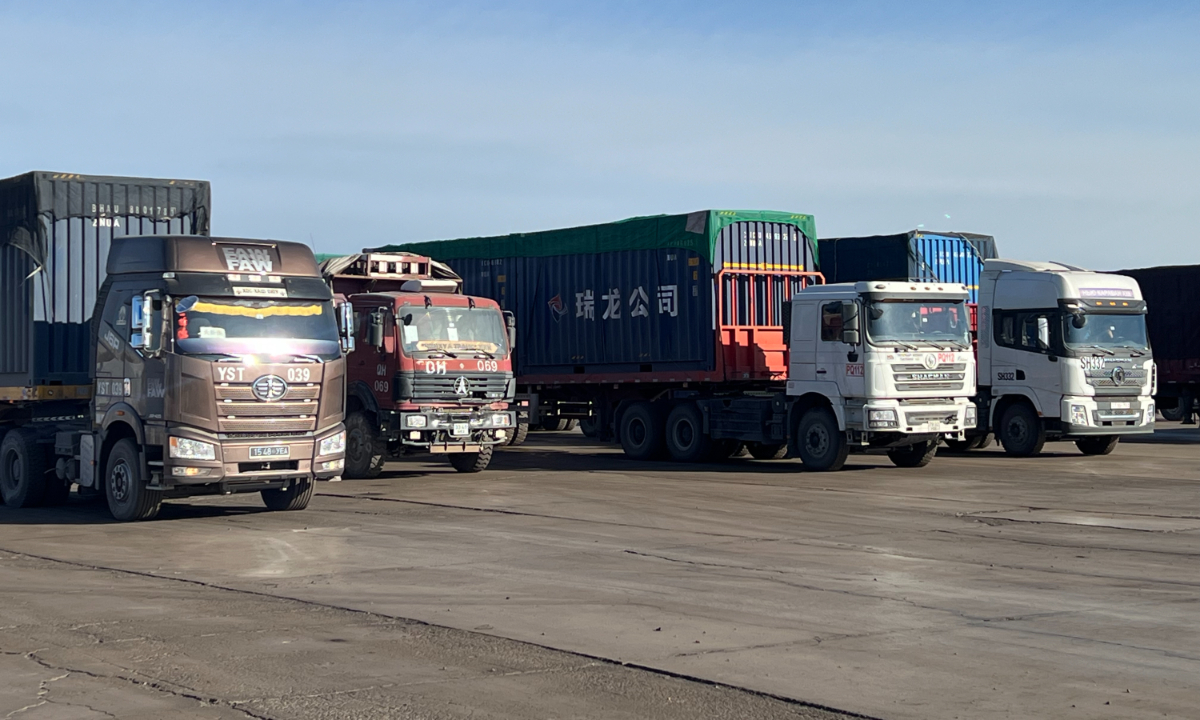China-Mongolia port, border city sees highest foreign trade in 31 yrs boosted by BRI

Freight trucks transport cargo at the Ceke port in North China's Inner Mongolia Autonomous Region on November 10, 2023. Photo: Tao Mingyang/GT
Foreign trade in China-Mongolia port and border city Ceke in North China's Inner Mongolia Autonomous Region hit historical heights in 2023, as cross-border trade was continuously upgraded by the Belt and Road Initiative (BRI).
As of Thursday, cross-border cargo facilitated at Ceke port, China's fourth largest land port located at Ejin Banner, Inner Mongolia, reached 14.82 million tons in 2023, valued at 9.78 billion yuan ($1.34 billion), the highest since the port was opened 31 years ago, the Global Times learnt from Ejin Customs on Friday.
The record cross-border trade volume of Ceke port was boosted by Ejin Customs' greatly upgraded clearance capacity and efficiency, Hong Yan, general manager of Ceke-based Inner Mongolia Zhongce E-commerce Co, told the Global Times on Friday.
"A total of 16 channels for cross-border freight trucks have all been put into use this year, and the surging demand for merchandise from both Chinese and Mongolian markets lifted the port's trade volume," Hong said.
At present, over 90 percent of cross-border cargo via Ceke port is coal. Hong's company is making efforts to expand import cargo categories to wool, meat, and export China-produced rice, fruit, vegetable and light industrial products to Mongolia.
"BRI will offer more assistive and guidance policies for cross-border trade companies from the technology and commerce sectors, plus the clearance capacity might be further enhanced by Ejin Customs and related government authorities. I believe China-Mongolia trade will reach a new level in 2024," Hong said.
Bayannur, a city in Inner Mongolia near the China-Mongolia border, registered foreign trade worth 31.25 billion yuan in the first three quarters of the year, up 28.5 percent year-on-year. It's the first time the figure has passed the 30 billion yuan benchmark.
A local enterprise said this was partly because the border city has strengthened cooperation and trade with BRI partner countries, and annual exports in 2023 may see a 20 percent rise year-on-year.
Bayannur's products have been exported to 102 overseas countries and regions, including 40 out of 65 BRI partner countries and regions, a representative of the local government told the Global Times on Thursday.